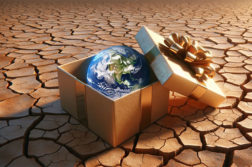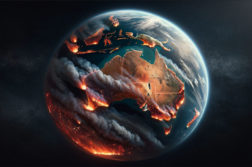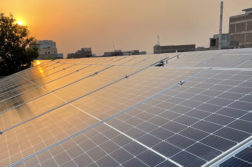It’s hard to know what to write. Every time I think about it, tears well up and I can’t see the screen properly. These fires have affected our nation at its very core, in a way I hadn’t seen before.
Yet in a sense, I should have been prepared for this. How many talks have I given over the past five years about scientists’ predictions of the "more frequent extreme weather events like bushfires, floods, droughts and hurricanes" that climate change will bring? Perhaps it had become a throwaway line. Just one of the many items you must include on the long list when someone asks you the question, "what will the impact of climate change be on Australia within our lifetimes?"
The human face of climate change impacts became real last weekend. Scientists have told us for a long time that climate change will increase the likelihood of events like these bushfires. In 2007, CSIRO research revealed that higher levels of global warming expose us to the risk of an exponential increase in fire weather — that warming above of between just 0.4 and 1.0 degree by 2020 (the IPCC’s low-range scenario) will see an alarming increase in days classified as Very High and Extreme fire danger days.
By 2050, high global warming scenarios indicate a jump of between 20-100 per cent in the frequency of "very extreme" fire weather across much of southern and eastern Australia, and the expected frequency of "catastrophic-range" fire weather conditions near Melbourne (for example) will rise from once every 33 years at present to every 2.4 years.
No-one can say for sure right now how much less devastating these recent fires would have been if the climate were not changing, but at the very least, this is a glimpse into the window of the future of a warming planet. First the heat-wave, then the floods and now the firestorms.
After the images of Hurricane Katrina were beamed across the globe, millions of people realised that the effects of climate change are not abstract. Climate change is not, at its core, about ice sheets melting in the Arctic, or extinctions and mass loss of biodiversity somewhere far away. It’s not about polar bears, or politics. Climate change is about survival — of all people, all species, and all nations.
In Victoria, whole towns have gone. Whole communities and their histories. Climate change doesn’t just affect animals or humans on an individual level — it attacks the heart and the identity of our nation and affects us all.
What gives me hope in the face of such devastation is the way our country has rallied together to mourn, and also to help the survivors. Already tens of millions of dollars have been donated to the Victorian Bushfire Appeal Fund. If we can unite around this crisis, it gives me hope that we can do the same around climate change.
The past week has shown the strength, courage and determination of the survivors, fire fighters and all those who have helped. When we are under threat, we join together to take action. We must treat reducing emissions to solve climate change with the same determination, strength and courage. This applies to our political leaders, too. The fact that politicians from all parties have for a few days left behind the political bickering and reacted with genuine emotion, compassion and empathy, shows their humanity — our humanity. Fundamentally, our politicians have more in common than they do differences.
It is during these raw and rare moments, when politicians can ignore the 24-hour news cycle and express their solidarity with the victims of the fires that I think: we all share a common interest in doing our best to make sure an event like this never happens again. And maybe they will realise that here is something that they have the power to do — and no longer have any excuse to avoid.
Just like you can’t negotiate with a bushfire, you can’t negotiate with climate science. The science says the world needs to do much more, or we will see increased extreme weather events like the ones we have just experienced. Taking a risk on runaway climate change is too great a risk for our country, which is one of the most vulnerable in the world to more frequent extreme weather events.
The latest science tells us that the end-game that the world must aim for is to stabilise greenhouse gasses at 350 CO2e or below. This is our best chance of preventing our planet spiralling into out-of-control climate change, the future effects of which we are now as a nation beginning to comprehend.
It’s possible some people may feel upset by the link being made in the media here and overseas between bushfires and climate change. I understand that people are shocked with grief. But there are many things we can and must learn from this tragedy, and one of them is this: The climate has changed. Our 5 per cent by 2020 carbon pollution reduction target is no longer politically viable. We are facing a climate emergency and running out of time.
Donate To New Matilda
New Matilda is a small, independent media outlet. We survive through reader contributions, and never losing a lawsuit. If you got something from this article, giving something back helps us to continue speaking truth to power. Every little bit counts.



